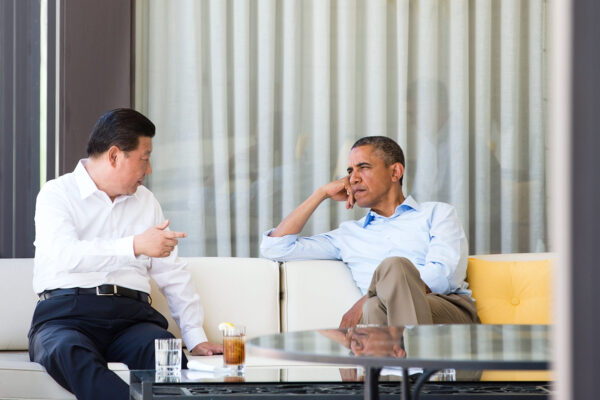
If America misinterprets the nature of Sino-Russian relations, it could follow a policy that ends up strengthening rather than weakening its two rival powers.
Jacob Stokes and Alexander Sullivan, both fellows at the Center for a New American Security, recently argued in Foreign Affairs magazine there is a high risk the country will because American commentary tends to either underestimate or overestimate the threat of a alliance between China and Russia.
On the one hand, they point out, scholars like Joseph Nye claim that the relationship is fatally flawed and riven with mistrust. This school of thought holds that China and Russia only cooperate when it suits both their interests, not out of a sense of shared destiny or because they have any grand strategic designs.
On the other hand are those who believe there is a strategic design. Stokes and Sullivan call this the “mighty axis” school. It tends toward the view that China and Russia are building a lasting partnership to challenge American dominance.
The reality is somewhere in the middle.
The authors admit that some areas of Sino-Russian cooperation threaten American interests.
Beijing and Moscow have, for instance, joined forces to normalize “cyber sovereignty,” that is, to increase national governments’ power over digital activity within their borders and thereby further fracture the free and open Internet. Likewise, Russia’s sale of the advanced S-400 surface-to-air missile system to China has the potential to seriously complicate American military planning in Asia-Pacific.
But other types of cooperation either do not affect the United States or are actually beneficial. China and Russia were both parties to the recent nuclear agreement with Iran, for example, and they have a radical Islamist threat in common with the West.
If Sino-Russian cooperation is a “mixed bag,” the policies prescribed by those who are either sanguine or alarmist about it will fall short.
Those who see the relationship as fatally flawed will argue that the United States need only stand aside for China and Russia to inevitably fall out.
Those who see the relationship as an immediate danger to American power will advocate containment — which is more likely to push China and Russia closer together than pull them apart.
The Atlantic Sentinel has cautioned against such a policy, arguing that if the United States are unable to accommodate a rising China that naturally expects a greater influence in East Asia or — worse — if China gets the impression that America intends to block its ascendancy, it could decide that the benefits of an alliance with Russia outweigh the costs and risks after all.
The United States need a better approach, write Stokes and Sullivan, one that focuses on isolating China and Russia together rather than trying to pry them apart.
Unlike during the Cold War, when the United States could form a quasi-alliance with China against Russia, triangulation is not an option. At the time, China was the weaker power and resentful of Russia’s attempts to run it like a communist puppet state.
Today Russia is the weaker power, China does not attempt to run it and the [Vladimir] Putin regime gains strength from both its ideological stand against the West and its growing ties with China.
There is little the United States can offer China to make it give up or rein in Russia because the more headaches Russia causes in Eastern Europe, the more the United States’ focus is drawn away from Asia.
Similarly, since Russia annexed the Crimea and the West imposed economic sanctions, there is little hope of drawing Russia back closer to Europe and the United States.
What the United States can do is push back against bad Chinese and Russian behavior on its own merits.
Both powers say they want the world order to shift away from American domination and toward multipolarity. In reality, they want the freedom to throw their weight around, as Russia has done in Ukraine and China is doing in the South China Sea.
America — and by extension the West — needs to resist Chinese and Russian bullying wherever it occurs. It needs to call out their “anti-hegemonic” proposals for what they are: efforts to replace America’s soft hegemony with a more authoritarian variant of their own.
Some smaller nations may be attracted to a vision of a less Americentric world. They ought to be reminded that their prosperity and security are much safer under the liberal world order of the United States than anything China and Russia can offer.
